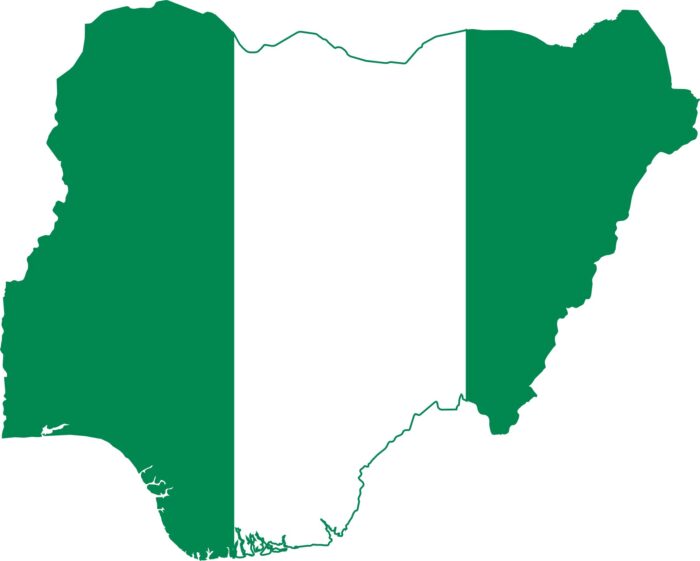Africa
The Economic Impact Of The Rising Cost Of Living In Nigeria, by Umar Zanna Wakil

The rising cost of living in Nigeria has become one of the most pressing issues facing millions of Nigerians, particularly in the wake of economic instability, inflation, and global disruptions. As the country grapples with these challenges, many citizens are struggling to make ends meet. The rising costs of basic goods, fuel, housing, and healthcare have put tremendous strain on the average Nigerian household, leading to an increase in poverty levels and inequality.
Inflation has been a major driver of the rising cost of living in Nigeria. According to the National Bureau of Statistics (NBS), inflation has consistently remained high, often reaching double-digit figures. This persistent inflationary trend has been largely fueled by rising food prices, the devaluation of the Naira, and supply chain disruptions exacerbated by global events such as the COVID-19 pandemic and the war in Ukraine. The increase in the cost of food has been particularly alarming, with staples like rice, maize, and palm oil becoming more expensive, making it harder for low-income families to maintain a nutritious diet. The rising price of fuel has also significantly impacted transportation costs, making daily commuting more expensive for Nigerians, especially in urban centers where public transportation is the primary means of travel.
In addition to these factors, the economic difficulties are compounded by the structural issues in Nigeria’s economy, such as inadequate infrastructure, corruption, and poor governance. These issues contribute to the high cost of doing business, and thus, goods and services. Businesses, particularly small and medium-sized enterprises (SMEs), are struggling to stay afloat due to rising operational costs. This, in turn, has led to job losses and reduced purchasing power, further deepening the economic crisis. In a recent report, the Central Bank of Nigeria (CBN) noted that the country’s unemployment rate continues to climb, exacerbating the challenges of the rising cost of living.
The impact of these economic difficulties is felt most acutely by Nigeria’s vulnerable populations, including women, children, and the elderly. Women, in particular, bear the brunt of the rising costs, as they are often responsible for household budgeting and food procurement. Increased prices for food and fuel often mean that women have to stretch household resources, sometimes compromising on essentials such as education and healthcare for their children. For young people, especially those entering the workforce, the economic environment is less promising. The combination of high unemployment rates and limited opportunities for growth has led to a generation of young Nigerians who are either underemployed or facing difficulty securing meaningful employment.
Furthermore, the rising cost of living has also led to increased migration, with many Nigerians seeking better opportunities abroad. According to the International Organization for Migration (IOM), there has been a noticeable uptick in the number of Nigerians attempting to migrate, either legally or illegally, to Europe, North America, and other parts of Africa. The desire for economic stability and better living conditions drives many to leave the country, thus exacerbating the brain drain and depriving Nigeria of its skilled workforce.
While the government has implemented policies aimed at curbing inflation and improving the cost of living, such as price control measures and agricultural subsidies, these interventions have often been ineffective or poorly executed. Critics argue that there is a need for more comprehensive economic reforms that address the root causes of inflation, such as fiscal discipline, reducing dependency on oil exports, and improving domestic production. Additionally, improving infrastructure and ensuring the efficient allocation of resources could reduce the cost of doing business and provide some relief to Nigerian households.
The private sector, particularly businesses in agriculture and manufacturing, also has a role to play in alleviating the rising cost of living. By improving local production and reducing reliance on imports, Nigerian businesses could help stabilize prices and create jobs. Supporting small-scale farmers and entrepreneurs with access to credit and better technology would improve productivity and reduce the costs of goods.
In conclusion, the rising cost of living in Nigeria remains a critical issue that demands urgent attention. Its impact on poverty, inequality, unemployment, and migration has far-reaching consequences for the country’s development. While the government has made attempts to address the situation, more systemic changes are needed to ensure that the cost of living becomes more manageable for Nigerians. Tackling the root causes of inflation, improving infrastructure, and supporting local industries are key strategies in mitigating the crisis. With the right combination of policy interventions and private sector involvement, Nigeria can begin to navigate this difficult economic terrain and work toward improving the livelihoods of its citizens.
Umar Zanna Wakil is a student in Mass Communication Department Borno State University Maiduguri, Borno State.

























